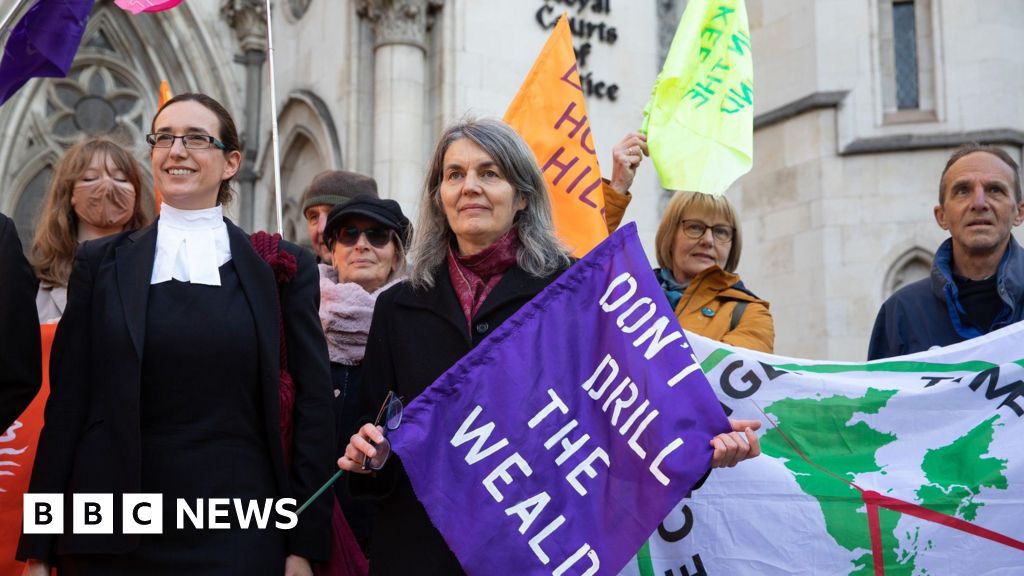- cross-posted to:
- climate@slrpnk.net
- cross-posted to:
- climate@slrpnk.net
🤖 I’m a bot that provides automatic summaries for articles:
Click here to see the summary
The Supreme Court has ruled a local council should have considered the full climate impact of burning oil from new wells - a landmark decision which could put future UK oil and gas projects in question.Under planning law the assumption has always been that only the impacts from constructing the wells and not the use of the final oil products should be considered.The case brought against Surrey County Council by Sarah Finch, on behalf of campaigners could threaten new UK fossil fuels projects.The council said it believed at the time it had followed planning law.
“I am absolutely over the moon to have won this important case," Sarah Finch told supporters.Today’s judgement relates to the Horse Hill oil well in Surrey.
The site was given planning permission to expand its operations in 2019, a decision that was challenged by Ms Finch, on behalf of Weald Action Group.Lawyers acting for Ms Finch said that as part of the Environmental Impact Assessment the council should have considered not just the greenhouse gas emissions from building the wells but also burning any oil that was then used – known as downstream emissions.In a three-to-two majority the Supreme Court judges agreed.Summing up the case Lord Leggatt said it was “inevitable” that oil from the site will be burned, and the resulting greenhouse emissions were “straightforwardly results of the project” which should be considered.The six wells at Horse Hill are expected to produce 3.3 million tonnes of crude oil over the next 20 years.
UK oil and gas plc said they will now work with Surrey County Council to amend its planning application, and that future production will fall below the levels at which an environmental assessment is required.Campaigners claim the judgement could also affect ongoing legal challenges of new projects in the UK including Rosebank oil field and the proposed coal mine in Whitehaven in Cumbria.
“Today’s groundbreaking ruling is a heavy blow for fossil fuel lobbyists,” said Weald Action Group.
“The UK is already veering dangerously off track for meeting its legally binding carbon reduction targets, and its international pledge to reduce emissions by two-thirds by 2030,” they added.Because the UK law on environmental assessments is based in part on European law the ruling could have impacts abroad as well, they say.
Saved 40% of original text.



